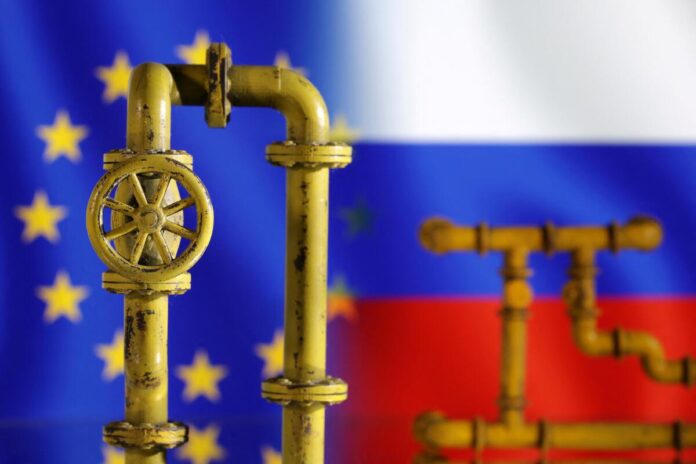European Union countries are set to tussle over emergency regulation that could force 15% cuts in gas consumption through the winter if Russia escalates its showdown with the bloc by halting deliveries, according to Bloomberg.
Energy ministers from the bloc’s 27 member states will meet on Tuesday to wrangle over backing a proposal from the European Commission. While a political agreement could be reached, there are fears the deal could lack teeth. Many member states are skeptical about making the voluntary target binding, highlighting concerns over the potential impact on local companies and consumers.
The urgency to act increased after Gazprom PJSC announced it will further curb flows through the key Nord Stream pipeline to around 20% of normal capacity from Wednesday. The Russian gas giant said one more turbine is due for maintenance and will be taken out of service, while Germany’s Economy Ministry said it saw “no technical reason” for the reduction.
The Czech Republic, which holds the EU’s rotating presidency, has proposed three changes to the Commission’s proposal from last week in a bid to win support. Countries mainly from southern and eastern Europe want flexibility on implementing any reduction target, and a qualified majority of member states is needed to pass the legislation.
The revisions include a provision that would increase the number of countries that have to request that a 15% demand-reduction target be made mandatory to five from three, according to a draft seen by Bloomberg. The Commission can also propose the emergency measure if it deems there’s high risk of a shortage. Both scenarios would also need majority backing from member states to take effect.
It’s not acceptable to “compel member states to accept mandatory reductions without the knowledge of what the upcoming winter is going to bring and without having their interests secured,” said Anna Moskwa, the climate minister from Poland, which has its gas-storage facilities almost full.
Other tweaks include taking into account the level of gas storage in a country as well as the possibility to exclude certain key industries. The rules will also only be set for one year, rather than two as originally outlined. Member states can ask for a lower mandatory reduction under certain criteria based on their interconnections with other nations.
The emergency rules set the stage for continued wrangling by member states as they seek to balance out the solidarity needed to prevent blackouts from disrupting the EU’s economy with ensuring that countries are able to look after their own populations and industries. Several countries, including Italy, Hungary, Poland, Portugal and Spain, had raised concerns over the reduction goals.
Gas prices jumped more than 10% following Gazprom’s decision to reduce Nord Stream flows even further. Moscow has been curbing shipments to the EU for months over apparent retaliation for the bloc’s support for Ukraine and sanctions over Russia’s invasion. The Kremlin has rejected allegations that it’s using energy as a weapon.


